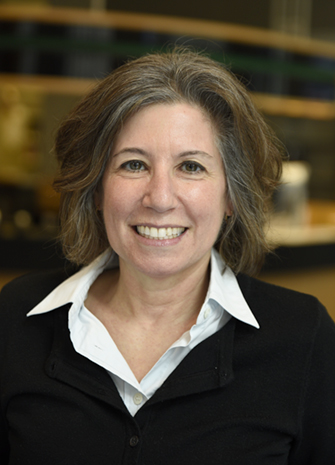
Associate Director, Stone Center
Presidential Professor of Sociology and Political Science
CUNY Graduate Center
Leslie McCall studies public opinion about inequality, opportunity, and related economic and policy issues; trends in actual earnings and family income inequality; and patterns of intersectional inequality. She is the author of The Undeserving Rich: American Beliefs about Inequality, Opportunity, and Redistribution (2013) and Complex Inequality: Gender, Class, and Race in the New Economy (2001). Her research has also been published in a wide range of journals and edited volumes and supported by the National Science Foundation, the Russell Sage Foundation, Demos: A Network of Ideas and Action, the Center for the Study of Democratic Politics at Princeton University, and the Graduate Center’s Advanced Research Collaborative. She was formerly at Northwestern University, where she was a professor of sociology and political science (courtesy), as well as a faculty fellow at the Institute for Policy Research.
While most of McCall’s published research to date focuses on inequality within the United States using existing survey data, her recently published and ongoing research branches out to incorporate other countries and new methodological approaches, including: studies of rising economic inequality among families and declining gender inequality using new demographic measures; media coverage of economic inequality since the 1980s using new machine learning tools; and public views about inequality, opportunity, and redistribution using survey experimental methods and new questions fielded on major international surveys. McCall also maintains an interest in the conceptualization and empirical analysis of intersectionality from a social science perspective.
Areas of Expertise
Public Opinion (Inequality, Opportunity, and Related Economic Policy Issues)
Earnings and Family Income Inequality
Patterns of Intersectional Inequality
Featured Work
Intersectionality and Explanation in Social Science Research
A.Y. Clark and L. McCall. Du Bois Review. vol. 10, no. 2. pp. 349-363. 2014.
Intersectionality: Theorizing Power, Empowering Theory
S. Cho, K. Crenshaw, and L. McCall (eds). Signs. vol. 38, no. 4. 2013.
Toward a Field of Intersectionality Studies: Theory, Applications, and Praxis
S. Cho, K.W. Crenshaw, and L. McCall. Signs. vol. 38, no. 4. pp. 785-810. 2013.
The Undeserving Rich: American Beliefs About Inequality, Opportunity, and Redistribution
L. McCall. Cambrige, MA: Cambridge University Press. 2013.
Class Differences in Social and Political Attitudes in the United States
L. McCall and J. Manza. In The Oxford Handbook of American Public Opinion and the Media. G.C. Edwards III, L.R. Jacobs, and R.Y. Shapiro (eds). pp. 552-570. New York: Oxford University Press. 2011.
Women and Men as Class and Race Actors: Comment on England
L. McCall. Gender and Society. vol 25, no. 1. pp. 94-100. 2011.
Income Inequality: New Trends and Research Directions
L. McCall and C. Percheski. Annual Review of Sociology. vol. 36, no. 1. pp. 329-347. 2010.
Americans’ Social Policy Preferences in the Era of Rising Inequality
L. McCall and L. Kenworthy. Perspectives on Politics. vol. 7, no. 3. pp. 459-484. 2009.
What Does Class Inequality Among Women Look Like? A Comparison with Men and Families in the United States, 1970-2000
L. McCall. In Social Class: How Does It Work? A. Lareau and D. Conley (eds). pp. 293-323. New York: Russell Sage Foundation. 2008.
Inequality, Public Opinion, and Redistribution
L. Kenworthy and L. McCall. Socio-Economic Review. vol. 6, no.1. Pages 35-68. 2008.
Thoughts from the Stone Center on the Pandemic and Its Impact
In this commentary, Stone Center faculty — Miles Corak, Janet Gornick, Paul Krugman, Leslie McCall, Branko Milanovic, and Salvatore Morelli — each with unique expertise in the study of inequality, offer insights on the COVID-19 crisis.
Does Adjusting for Family Size Eliminate the Partnership Benefit?
In this spotlight on data, Leslie McCall considers whether adjusting for family size eliminates economic benefits for families headed by couples compared to those headed by single people.
Couples with (Economic) Benefits
In this spotlight on data, Leslie McCall discusses how marriage and cohabitation — relative to being single — affect where men and women fall along the income distribution.
LIS Data and Quantitative Methods
In this video, Leslie McCall discusses quantitative methods in the social sciences and their uses in the Stone Center's work.
Leslie McCall in Conversation About Economic Inequality
Our Stone Center scholar talks about economic inequality and how people view inequality with former-COES fellow Cristóbal Moya.

 Stone Center on Socio-Economic Inequality
Stone Center on Socio-Economic Inequality